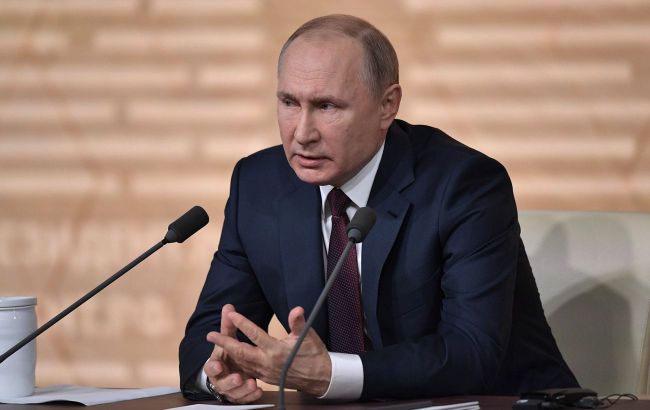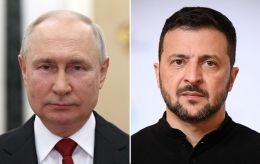Terror attack in Russia exposes Putin's weakness: 3 possible outcomes
 Russian dictator Vladimir Putin (kremlin.ru)
Russian dictator Vladimir Putin (kremlin.ru)
A recent terrorist attack at the Crocus City Hall demonstrated the unstable position of Russian dictator Vladimir Putin, and how Russia's security apparatus is unprepared for such challenges, reports The Times.
According to the media, the sequence of events unfolding in Russia demonstrates how Putin is gradually losing control. For example:
- On February 16, Alexei Navalny, who was a competitor to Putin, died.
- In early March, Russians held a silent mourning for Navalny, whom some considered a leader.
- On March 7, the United States warned of a terrorist threat in Russia, but Putin ignored it, claiming it was an attempt to reduce voter turnout during the election that he won with a "suspiciously high result of 88%".
The article says the events show Putin gradually losing control over events in Russia, noting that the war in Ukraine has deprived him of a narrow vision, while Russians who once imagined him as a trusted leader now fear for their own future.
The Times outlined three possible scenarios after the terrorist attack in Russia:
- Russia may present the attack as an operation under a false flag to fuel public anger against Ukraine and legitimize general mobilization;
- Putin may use the attack as a means to freeze the war against Ukraine and focus on the war against terrorism;
- the dictator has already lost control, allowing internal conflicts to prevail.
According to the media, the return of Islamist terror to Russia was both predictable and ignored. Putin's intervention in Syria to support butcher Bashar al-Assad has earned him not many friends. Central Asian republics also feel his weakness. Putin will intensify intelligence sharing on ISIS with Türkiye, China, Iran, and North Korea, The Times notes.
Terrorist attack in the Moscow region
On Friday, March 22, several armed men in camouflage opened fire at the Crocus City Hall in Krasnogorsk. Later, law enforcement detained four suspects. Dictator Vladimir Putin, for his part, alleged Ukraine's "involvement" in the attack, claiming that terrorists planned to escape to a country where a "window" was prepared.
Islamic State claimed responsibility for the attack. The United States confirmed ISIS's involvement and rejected Ukraine's involvement.

